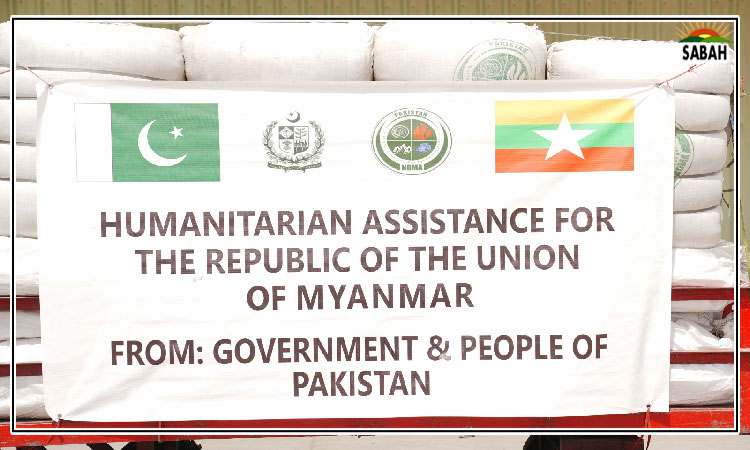How the West sees India…Maheen Shafeeq
India has been under international scrutiny since Canadian Prime Minister Justin Trudeau affirmed having credible allegations of a potential link between Indian government agents and the killing of Canadian citizen Hardeep Singh Nijjar in June 2023.
However, the international community gave an underwhelming response to these allegations. Many viewed the allegations as still under investigation and urged India to cooperate, while others saw it as a way to tarnish Indias global reputation, especially the one it gathered after the G20 Summit.
So far, only Pakistan and Canada have raised serious concerns regarding the state-sponsored transnational terrorism being carried out by Indian agents on foreign soil, undermining their sovereignty. It seems that the condemning statements and back and forth of escalatory measures by Canada and India have stopped, and the allegations did not cause India much harm, especially in its relations with the US.
Experts in Washington have stated that the India-Canada diplomatic row will barely impact US relations with India. Lisa Curtis, director at the Center for New American Security, believed that although the Biden Administration took the allegations seriously, tensions have started to dial down. Over the long run, these allegations will be overlooked given the Biden Administrations investment in India.
Likewise, Derek Grossman at RAND also stressed similar sentiments and gave the impression that tensions have started to simmer. He stated that Indian Foreign Minister J. Jaishankar refrained from discussing the matter at the United Nations General Assembly (UNGA) in New York, and the Canadian Defense Minister Bill Blair also stated that Canadas relationship with India was an important one and that they did not wish to escalate tensions further. Right after making the allegations, the Canadian PM also toed the same line as his defence minister.
South Asia Institute Director at Wilson Center Michael Kugelman also expressed that after the Biden Administration aired its strong concern, there was less talk on the matter. He termed the crisis as a major conundrum for the Biden Administration that is confronted with two close partners on opposing positions.
From the above deliberations, it seems the matter is starting to lose its momentum and might soon become history. This also shows that Indias global network of extrajudicial killings might have gotten a get-out-of-jail-free card, which could be due to its perceived role in the international community.
New Delhi has preserved an esteemed reputation in Washington and other Western capitals, and despite the allegations, Indias reputation seems barely stained. Although US Secretary of State Antony Blinken has stressed holding India accountable regarding its involvement in killing on foreign soil, this will not slow down Washingtons efforts in courting India.
Wilson Centre, a Washington-based think tank, published opinions of experts in Washington on the India-Canada falling out and many of them were of the view that the allegations by Canada regarding a strategic partner of the US has put the US in a tough spot, making it a challenge for the US to balance its relations with both of its important partners. Some experts viewed it as an issue of values of democracy, sovereignty and international law, and questioned if these values would be paramount in this scenario too, on which the jury is still out.
During the meeting between the Indian FM and US Secretary of State Antony Blinken after the allegations, Blinken raised the issue with his counterpart and urged India to cooperate with Canadas investigation. However, as the meeting itself showed, these allegations could not isolate India. They might add a point of uncomfortable discussion between the two partners; however, it is unlikely the US will detach itself from India based on this issue. Many of the Wilson Centre experts stressed Indias growing role in providing a counterweight to China as a reason why the matter received an underwhelming response from the international community.
The US and India have expanded the scope of their multifaceted strategic partnership. This year alone was a triumph for India when during his state visit to the US, Indian Prime Minister Narendra Modi bagged deals ranging from joint defence production projects to cooperation in space and quantum computing. The bedrock for this resilient bond is Indias growing economic might and its perceived potential to act as a bulwark against China.
China as a regional rival for India and a strategic competitor for the US brings New Delhi and Washington to the point of convergence. Regardless of many experts highlighting Indias limits to counter China due to its economic dependence on it and the inferiority of Indias defence forces as compared to China, Washington is set to upgrade its ties with India.
Ashley Telis, a former US foreign policymaker and a key figure in fortifying US-India relations, has himself expressed scepticism of the Modi governments will to counter China for Washingtons interests. He stated in his article in Foreign Policy that New Delhi will not side with Washington against Beijing owing to its individualistic foreign policy. This does not imply that New Delhi will pause reaping the benefits of its ties with Washington because of its unwillingness or inability to counter China, rather this implies that New Delhi will continue scoring benefits under its take only policy. The USs benevolence in this regard is due to Indias apparent probability of countering China. These aspects can also be stated as reasons for the limited support that Canada has received in its response to allegations.
Although the India-Canada diplomatic row is starting to simmer, it is evident that Canadas allegations were taken seriously by the states, especially by the US. These allegations could have been utilized by Washington to put its weight on India, especially after Indias growing involvement in BRICS, a group of nations led by China and Russia, and its increasing inclination towards Russia. However, so far, it seems that the seriousness of the allegations has been brushed under the carpet due to supreme geopolitical matters.
Courtesy The News












